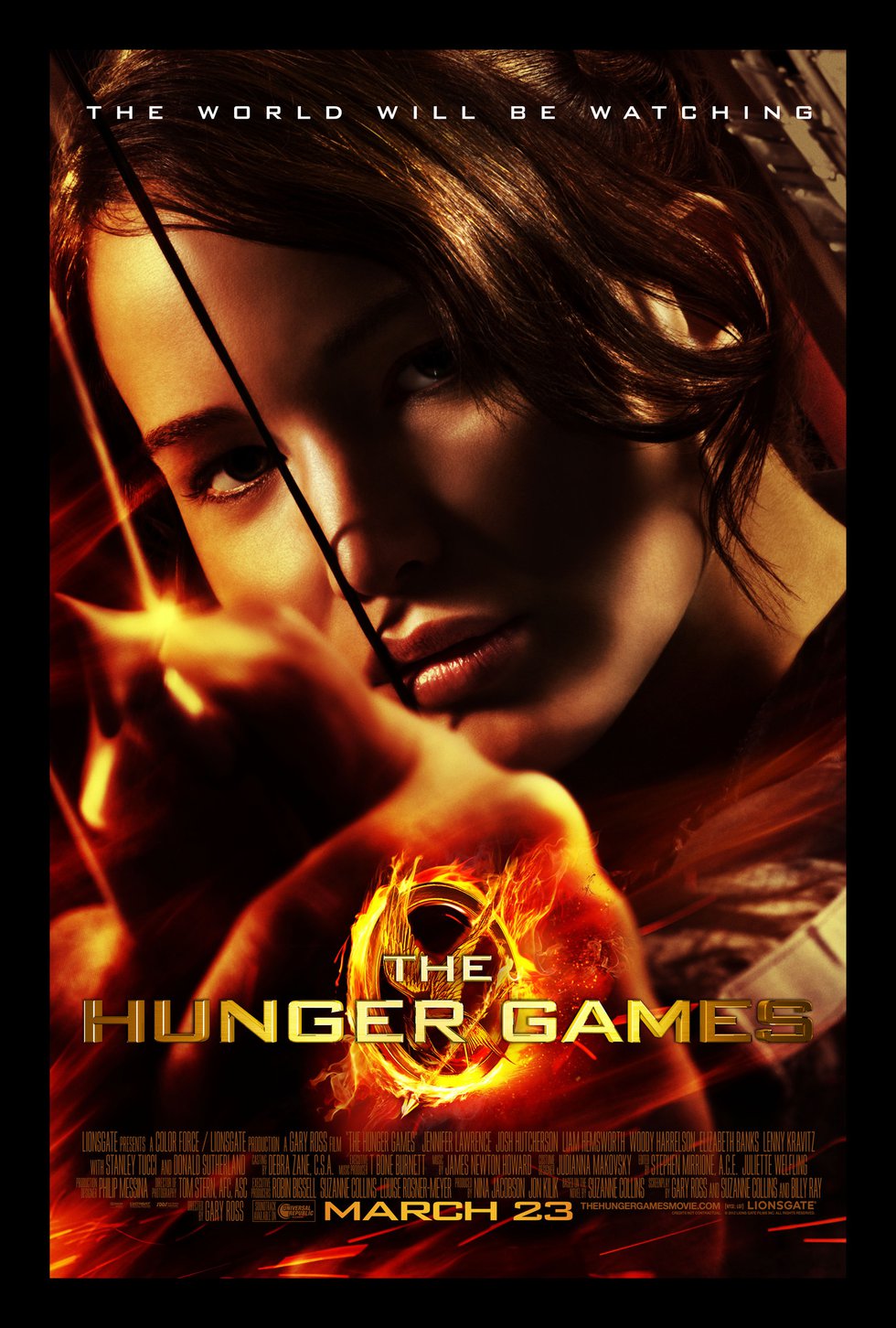March 23rd marks ten years since the first installment of The Hunger Games franchise hit theaters in 2012. Based on the series of books by Suzanne Collins, the film is set in a dystopian version of North America, in which the country is divided into a wealthy capitol and twelve impoverished districts. Every year, each district must select two children to compete in the hunger games, a televised tournament to the death with a single surviving victor. The book series was met with critical and audience acclaim and film rights were quickly swept up by Color Force and Lions Gate Entertainment.
In 2012, the first film in the series set records on its opening day and was a massive box office success. The success of The Hunger Games’ film adaptation launched a craze of adapting other young adult dystopian book series to the screen. The market quickly became oversaturated with films series like Divergent, The Maze Runner, and The Giver, and the trend burned out just a few years after it began. So, what sets The Hunger Games apart from these other dystopian films? Why is The Hunger Games still impactful after ten years?
Katniss as a Heroine
The heroine of The Hunger Games is Katniss Everdeen, a sixteen-year-old girl from District 12, the nation’s poorest district. At the start of the series, Katniss acts as a provider for her family, often hunting in the forest with her bow and arrow to keep her family from starving. When her younger sister is selected as tribute in the hunger games, Katniss volunteers to compete in her place. This defining moment struck a chord with audiences who were not used to seeing a young woman take on the role of fierce protector that is typically held by men.
While romance is a big part of The Hunger Games series, audiences noticed how Katniss was typically motivated by her family, instead of a relationship. The Hunger Games was released the same year as the conclusion of The Twilight Saga, whose teenage protagonist, Bella, was largely motivated by romance. Although Twilight was also enormously successful, audiences were hungry for a young female protagonist who cared about more than boys. While the validity of comparing these two characters has been debated in the past ten years, in 2012, many young women preferred to think of themselves as brave Katnisses, rather than doe-eyed Bellas.
This character is even more impactful through her portrayal by Jennifer Lawrence. Although she had already received an Oscar nomination for Winter’s Bone, the role of Katniss Everdeen is the performance that catapulted Jennifer Lawrence to fame. In a film with great performances from respected actors like Stanley Tucci, Elizabeth Banks, and Donald Sutherland – Jennifer Lawrence’s subtlety and vulnerability carry the film. Lawrence portrays both the bravery and resilience of the character, as well as her awkwardness and kindness in a way that resonated with audiences.
Generation K
The generation of young adults who came of age during The Hunger Games’ popularity experienced a growing unease of the society they grew up in. This generation is characterized by the anxiety of living through the economic recession, the threat of terrorism, and the rise of technology. In an article with the Guardian, writer, Noreena Hurtz, refers to this generation as Generation Katniss, or Generation K, due to the way The Hunger Games embodied these characteristics.
The effect of technology is palpable in The Hunger Games. Because the atrocities of the hunger games are televised, participants are forced to undergo an extensive media tour before the games. Their cultivated public personas can even impact their performance in the competition through sponsorship. This mirrors the pressures put on young adults by social media that has only gotten stronger since the film’s release.
The film also explores the economic inequality that engulfs modern society. In a Vox article on the legacy of The Hunger Games, author Emily St. James notes that the film “gave us a way to talk about something people could feel intuitively but struggled to put into words — namely, a growing income gap between the haves and have-nots, and an ever-sharpening divide between cities and rural areas.” The Hunger Games turned these complex issues into a compelling story for young adults.
While other dystopian franchises also tackled these themes, few did so with the wit of The Hunger Games. Its effect on society is undeniable, with slogans and symbols from the film being used in real protest movements today. The Hunger Games does not provide answers to all of society's problems, but the film helped foster a culture in which young adults (especially young women) can take action and promote change.
Get your copy of The Hunger Games: 4-Movie Collection 4K Blu-ray by clicking here.
If you'd like to read the books, order The Hunger Games Trilogy Box Set: The Hunger Games, Catching Fire, & Mockingjay.



